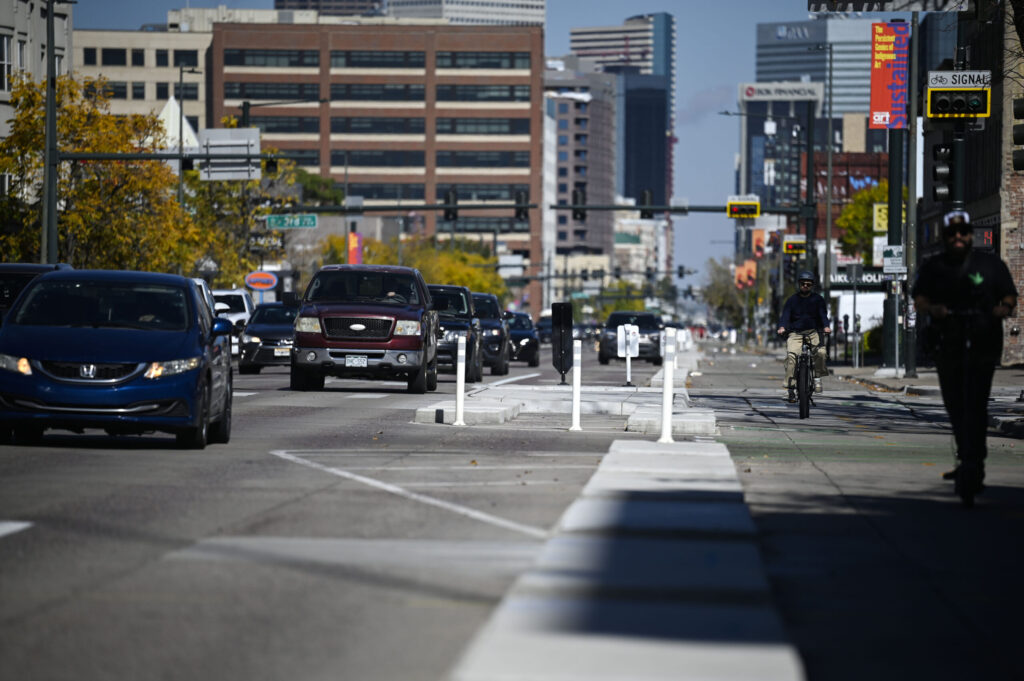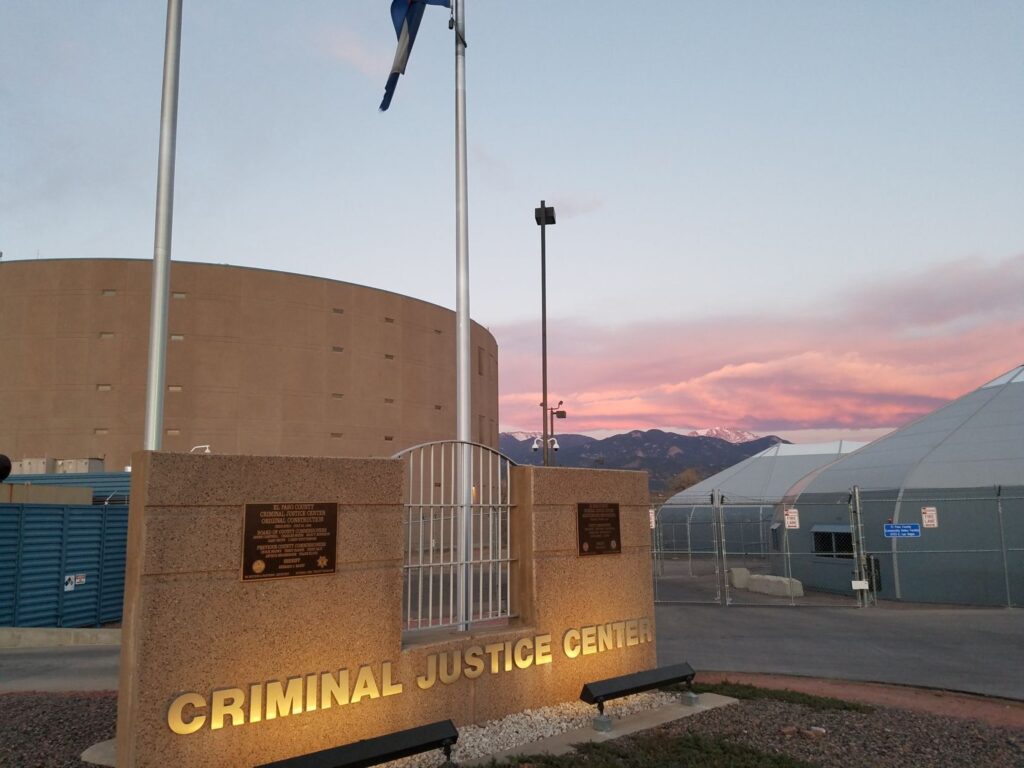Trump declares invasion by Tren de Aragua, orders arrest of members
Invoking the Aliens Enemies Act, the Trump administration on Saturday ordered the arrest of members of Tren de Aragua, declaring that the gang — which took over at least two apartment complexes in Aurora, Colorado — is “perpetrating, attempting, and threatening an invasion or predatory incursion against the territory of the United States.”
Hours later, a federal judge barred the administration from deportations under the 18th century law, arguing his order was necessary because the government was already flying immigrants it deemed deportable, under Trump’s proclamation, to El Salvador and Honduras to be imprisoned there.
Trump’s declaration and the court’s order are the latest in what has become a protracted back-and-forth between the administration, which seeks to advance the president’s agenda, and several federal courts, which have blocked or suspended the administration’s executive actions.
The Alien Enemies Act of 1798 is a sweeping wartime authority that allows the president broader leeway on policy and executive action — this time invoked to speed up mass deportations.
In his order, Trump said TdA, the transnational gang from Venezuela, is undertaking “hostile actions” and “conducting irregular warfare” against the U.S. The Trump administration also claimed that the gang is acting both “directly and at the direction, clandestine or otherwise, of the Maduro regime in Venezuela.”
Trump argued that the 18th century law allows him to proclaim that all Venezuelan citizens 14 years who are TdA members but who are not naturalized citizens or lawful permanent residents are liable for arrest and removal. He also declared the TdA members to be chargeable with “actual hostility” against the U.S.
“All such members of TdA are a danger to the public peace or safety of the United States,” he said.
Originally, a prison gang that started in Tocorón Penitentiary Center in Aragua, a state in north-central Venezuela, TdA has expanded the footprint of its criminal enterprises into at least eight Latin American countries, including Brazil, Colombia and Chile. The organization has an estimated 3,000 to 5,000 members, according to Ronna Rísquez, a Venezuelan investigative journalist.
It’s unclear when TdA was first discovered in the United States, but it is believed that gang members embedded themselves with immigrants fleeing the political and economic collapse in Venezuela. Nearly eight million Venezuelans have already fled their country under President Nicolás Maduro’s oppressive regime, with more than 500,000 estimated to be living in the U.S.
Since 2023, some 43,000 immigrants — who illegally crossed the southern border with Mexico — have arrived in Denver. Early in the humanitarian crisis, Denver officials decided to assume the responsibility for the response, which has cost more than $80 million.
Train, bus and plane tickets for immigrants to travel elsewhere suggest that about half have stayed, which is the equivalent of a city about the size of Golden being added to the Denver metro area in two years.
Through violence and intimidation, the gang ran off an apartment management in a complex and demanded half of the rent from leaseholders and moved “vulnerable immigrant families into vacant units.”
Police have arrested several members on a variety of charges, including an armed home invasion, in which a Venezuelan couple was bound, pistol-whipped, and tortured. Councilmember Danielle Jurinsky, an Aurora councilmember, said the suspects ripped out the woman’s fingernails.
Last year, the Biden administration issued sanctions against the gang, offering a $12 million reward for three leaders of TdA, which joined other transnational criminal organizations like MS-13 and The Camorra from Italy that are banned from doing business in the U.S.
The gang has a diverse portfolio of criminal activities that include drug trafficking; human trafficking, particularly immigrant women and girls; kidnapping; extortion; and, money laundering.
Trump earlier issued an executive order designating the Venezuelan prison gang a “terrorist organization.”
Former Denver Police Chief Paul Pazen, who praised the White House’s move, said that designation will aid law enforcement in several critical ways. Chief among the designation’s advantages is the difference between a state and a federal sentence, he said.
“When it’s a federal crime, an individual is facing what they call ‘straight time,’” Pazen said.
By that, Pazen means that a 10-year federal sentence requires a felon to serve 10 years because there is no federal parole system.
During a campaign stop in Aurora last fall, Trump swore to crack down on gang members illegally living in the U.S. in what he dubbed as “Operation Aurora.” Trump has also called for the death penalty for those who kill American citizens.
Passed in 1798 as part of the Alien and Sedition Acts, the Aliens Enemies Act was last used as part of the internment of Japanese-American civilians during World War II and has only been used two other times in American history, during World War I and the War of 1812.
Trump argued in his declaration that it is justified because he contends the Tren de Aragua gang, a common talking point on the campaign trail, has ties to the regime of Venezuelan President Nicolas Maduro.
Trump talked about using the act during his presidential campaign. That led to Saturday’s unusual lawsuit – filed before Trump’s declaration even became public. The American Civil Liberties Union and Democracy Forward filed the lawsuit on behalf of five Venezuelans whose cases suddenly moved toward deportation in recent hours.
James E. Boasberg, chief judge of the D.C. Circuit, agreed to implement a temporary restraining order preventing the deportation for 14 days under. Boasberg said his order was “to preserve the status quo.” He scheduled a hearing for later in the afternoon to see if his order should be expanded to protect all Venezuelans in the U.S.
Hours later, the Trump administration appealed the initial restraining order, contending that halting a presidential act before it has been announced would cripple the executive branch.
If the order were allowed to stand, “district courts would have license to enjoin virtually any urgent national-security action just upon receipt of a complaint,” the Justice Department wrote in its appeal.
Denver Gazette reporters Alexander Edwards and Nicole C. Brambila and The Associated Press contributed to this report.











